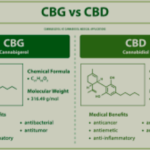When it comes to car insurance, selecting the right type of coverage is crucial. The two primary types of car insurance policies available in India are third-party insurance and comprehensive insurance. Each type has its own set of benefits and limitations, and understanding these can help you make an informed decision. This article will delve into the differences between third-party and comprehensive car insurance, helping you decide which one is the best fit for your needs.
What is Third-Party Car Insurance?
Third-party car insurance is the most basic form of car insurance mandated by the Indian Motor Vehicles Act. It is a legal requirement for all car owners to have at least third-party insurance.
Key Features of Third-Party Car Insurance:
- Legal Requirement: It is mandatory for all vehicles to have third-party insurance to legally drive on Indian roads.
- Coverage for Third-Party Liabilities: This policy covers damages caused to a third party’s property or injuries/death caused to a third party in an accident involving your vehicle.
- Affordable Premiums: The premiums for third-party insurance are generally lower compared to comprehensive insurance.
- No Coverage for Own Damages: It does not cover any damages to your own vehicle or any injuries to you as the driver.
What is Comprehensive Car Insurance?
Comprehensive car insurance offers extensive coverage compared to third-party insurance. It includes both third-party liabilities and damages to your own vehicle.
Key Features of Comprehensive Car Insurance:
- Extensive Coverage: Provides coverage for third-party liabilities as well as damages to your own vehicle due to accidents, theft, fire, natural calamities, and more.
- Personal Accident Cover: Offers personal accident cover for the driver-owner.
- Add-On Covers: You can enhance your policy with various add-ons like zero depreciation cover, engine protection cover, roadside assistance, etc.
- Higher Premiums: Premiums for comprehensive insurance are higher due to the extensive coverage it offers.
Differences Between Third-Party and Comprehensive Car Insurance
1. Coverage Scope
- Third-Party Insurance: Only covers third-party liabilities (damage to third party property, injuries, or death of a third party).
- Comprehensive Insurance: Covers third-party liabilities as well as damages to your own vehicle, personal accident cover, and can be enhanced with add-ons.
2. Premium Costs
- Third-Party Insurance: Generally has lower premiums due to limited coverage.
- Comprehensive Insurance: Has higher premiums because it provides extensive coverage and additional benefits.
3. Legal Requirement
- Third-Party Insurance: Mandatory for all vehicles under the Indian Motor Vehicles Act.
- Comprehensive Insurance: Not mandatory, but highly recommended for broader protection.
4. Customizability
- Third-Party Insurance: Limited in terms of customization and add-ons.
- Comprehensive Insurance: Highly customizable with various add-on options to enhance coverage.
Which One Should You Choose?
Consider Third-Party Insurance If:
- Cost-Sensitive: You are looking for the most affordable option to fulfill legal requirements.
- Older Vehicle: Your car is old and has a low market value, making comprehensive coverage less financially viable.
- Minimal Usage: You rarely use your vehicle, thus reducing the risk of accidents or damage.
Consider Comprehensive Insurance If:
- New or Expensive Vehicle: You own a new or high-value car that requires extensive protection.
- Frequent Use: You use your vehicle regularly, increasing the risk of accidents or damage.
- Financial Security: You want peace of mind with complete financial protection against various risks, including natural calamities and theft.
- Customization Needs: You prefer having the flexibility to add extra protection with add-ons like zero depreciation, roadside assistance, and more.
Benefits of Using AapkaPolicyWala for Car Insurance
Easy Comparison:
AapkaPolicyWala allows you to compare different car insurance policies, both third-party and comprehensive, from multiple insurers in one place. This helps you find the best coverage at the best price.
Convenient Purchase:
Buying car insurance online through AapkaPolicyWala is simple and convenient. You can complete the entire process, from comparison to payment, within minutes.
Informed Decision:
Detailed information on coverage options, premiums, and add-ons helps you make an informed decision about the right policy for your needs.
Conclusion
Choosing between third-party and comprehensive cars insurance depends on various factors such as your vehicle’s age, usage, and your financial considerations. While third-party insurance is mandatory and provides basic coverage, comprehensive insurance offers extensive protection and peace of mind. Platforms like AapkaPolicyWala make it easier to compare and purchase the right car insurance policy tailored to your needs. By understanding the differences and benefits of each type of insurance, you can make an informed choice that ensures optimal protection for your vehicle.
Feel free to submit more guest posts through Links Building Servcies - Best Prices. Buy Author Account / 1$ Guest Post Here






















